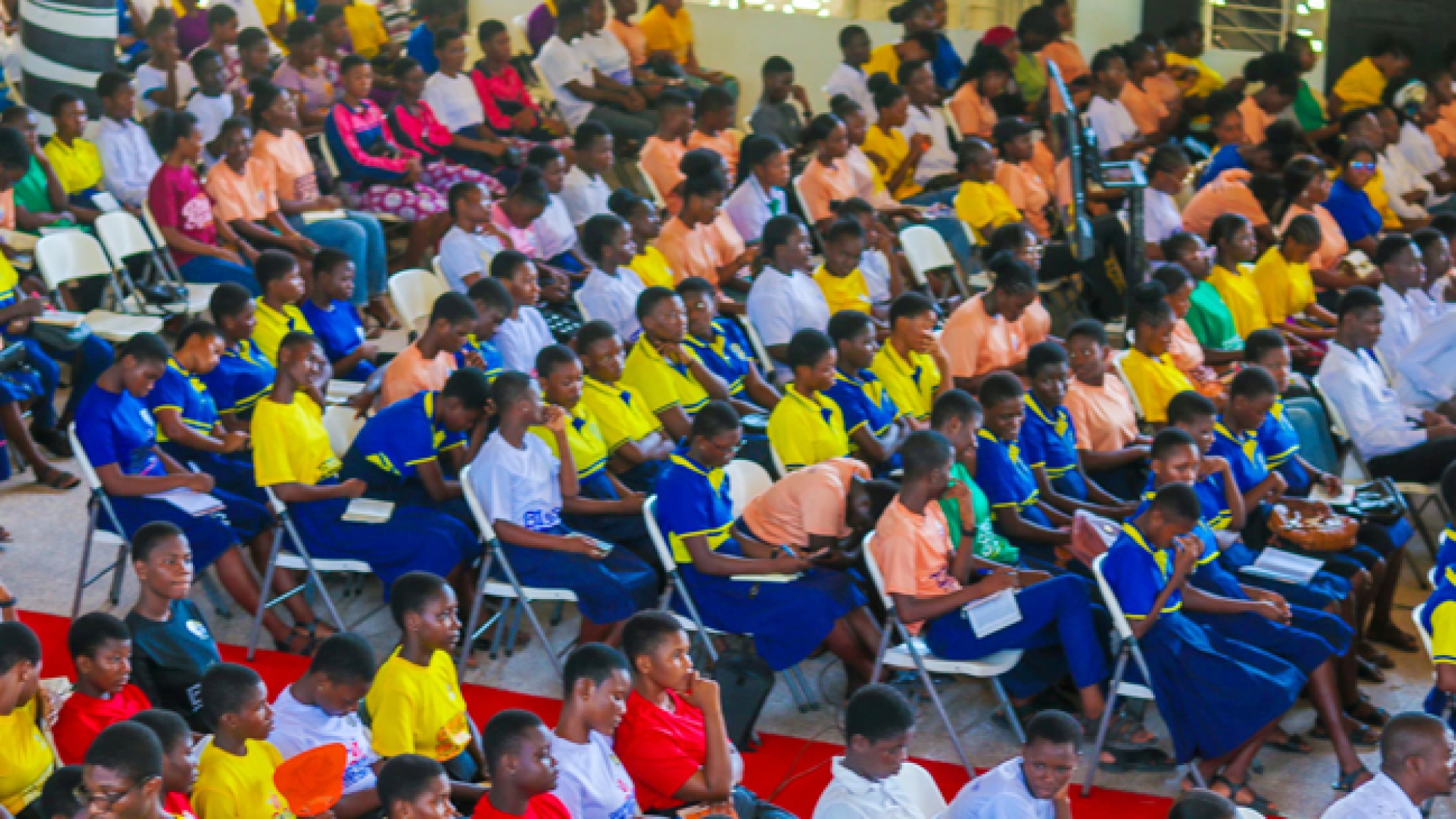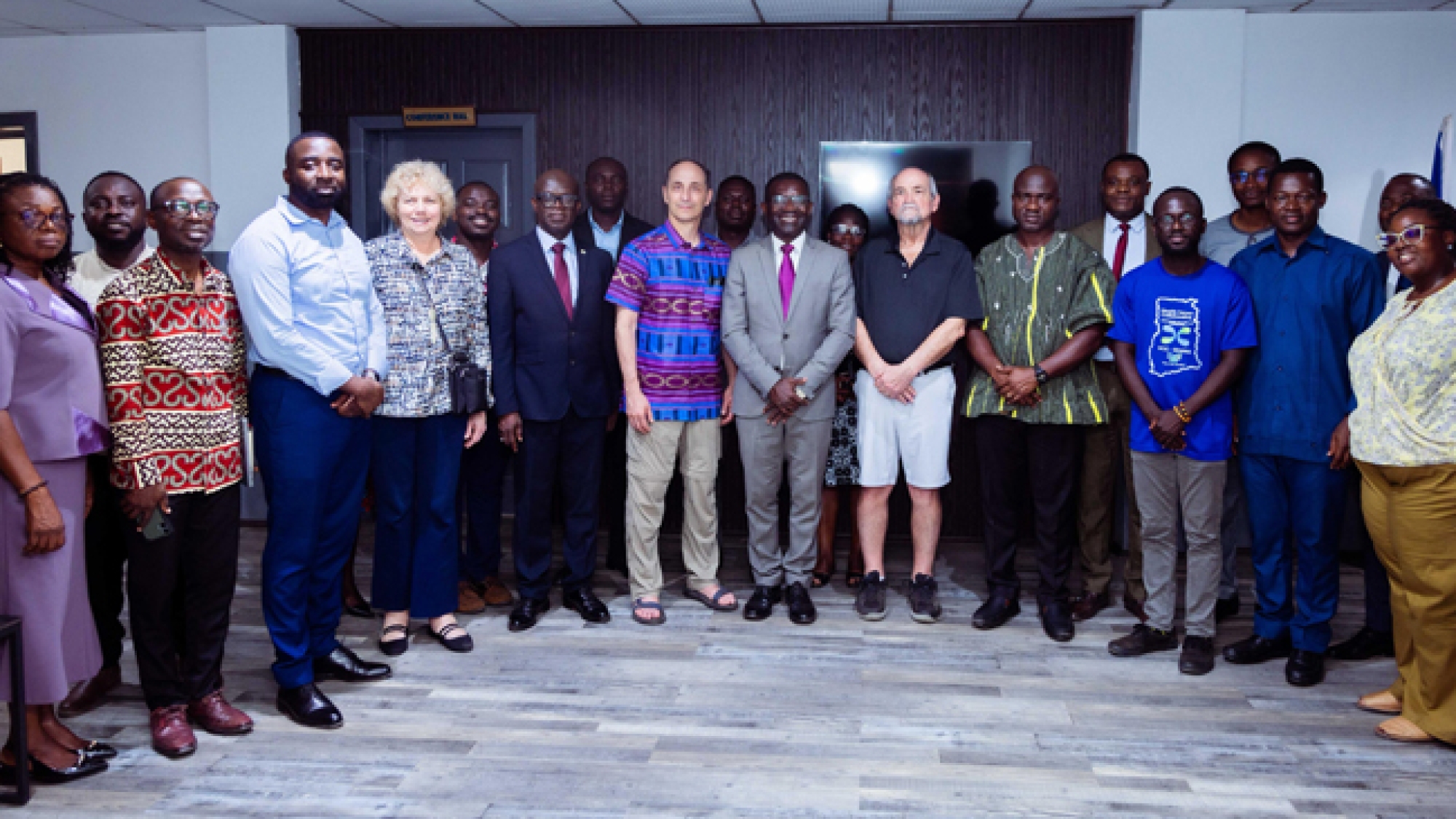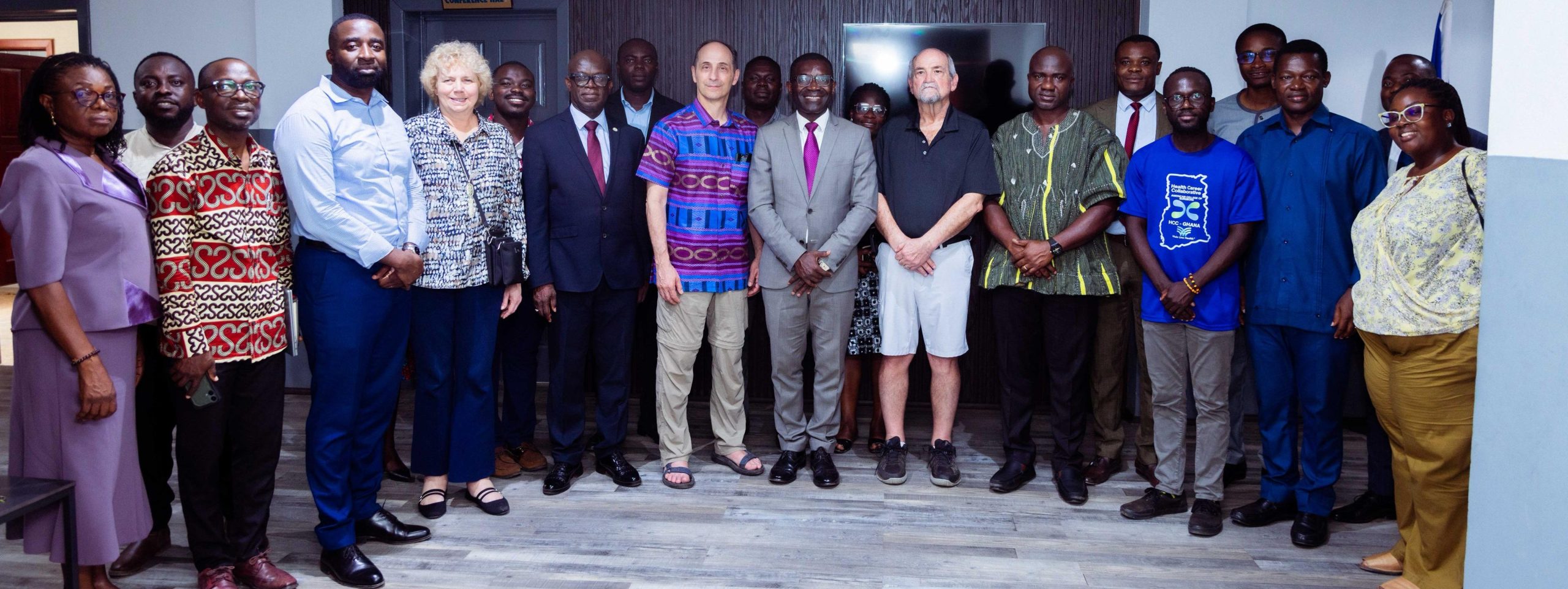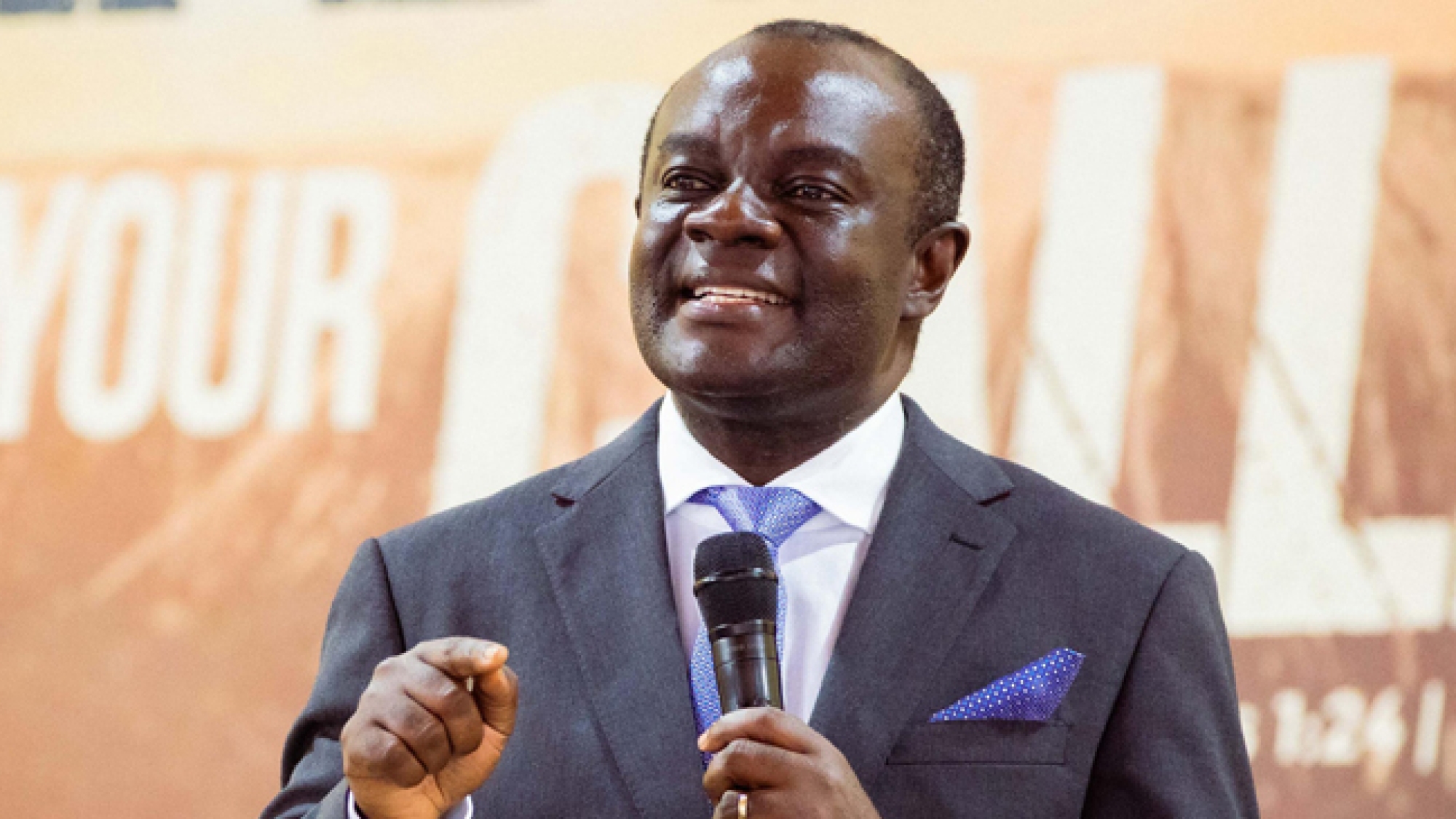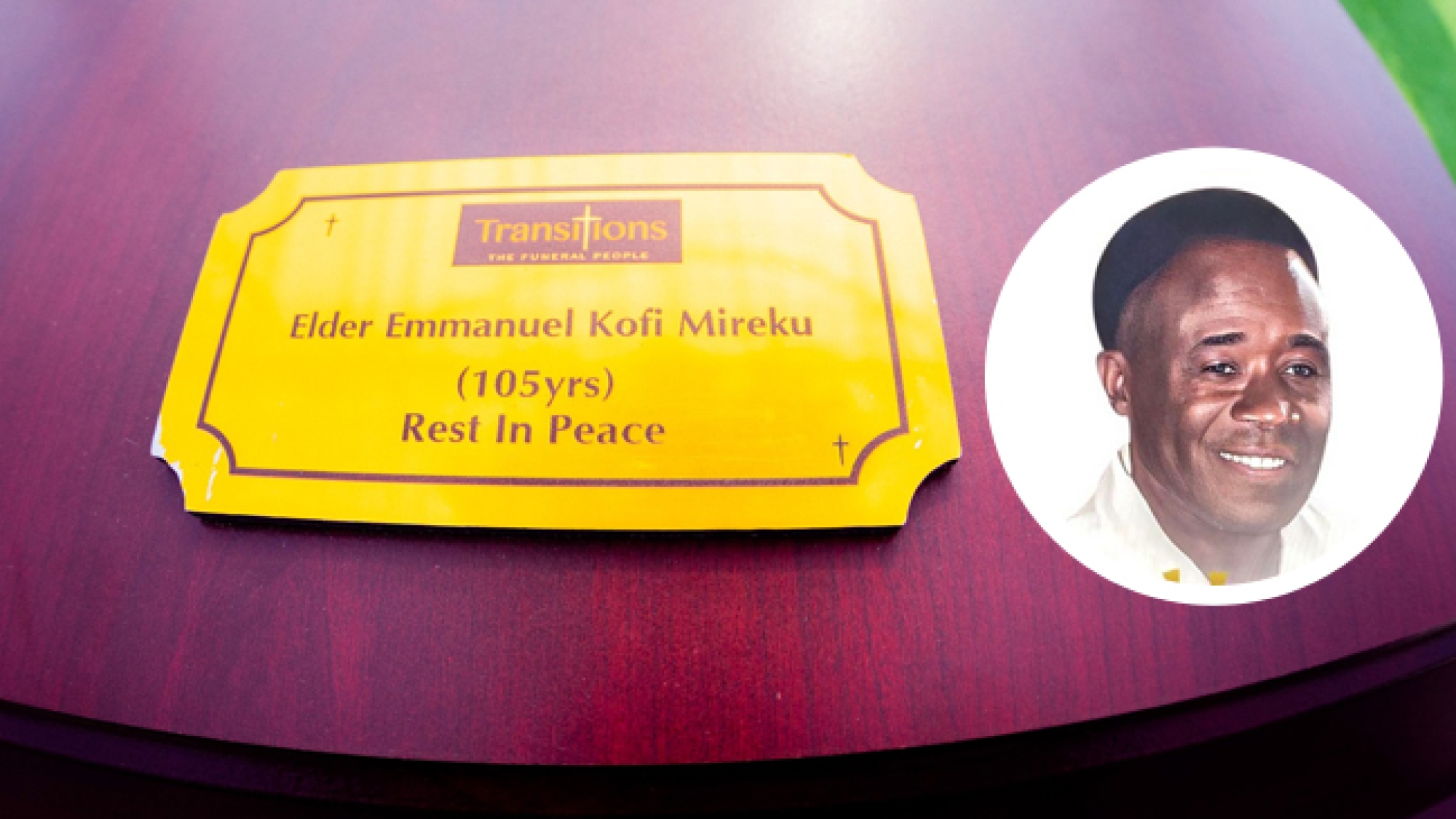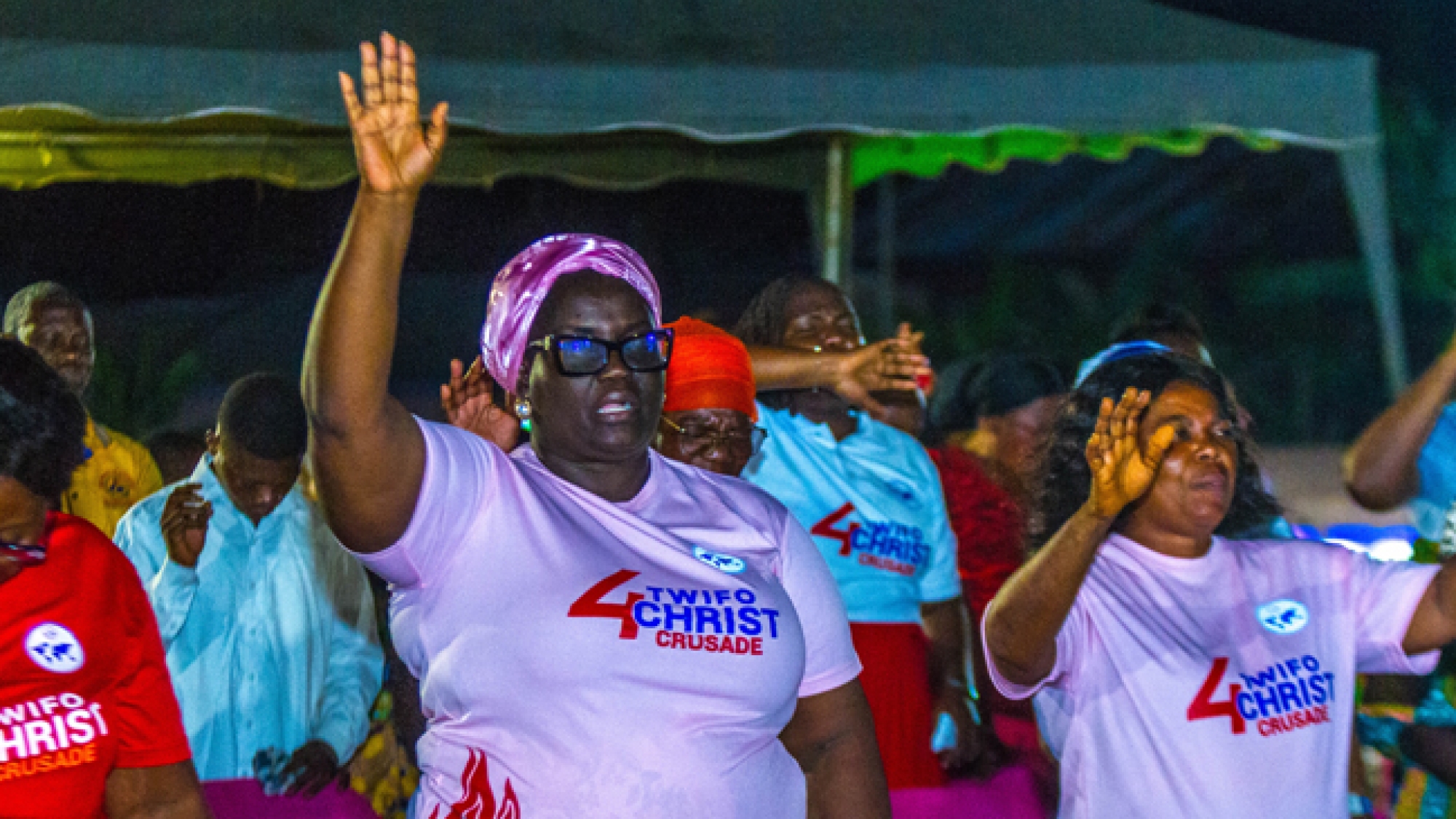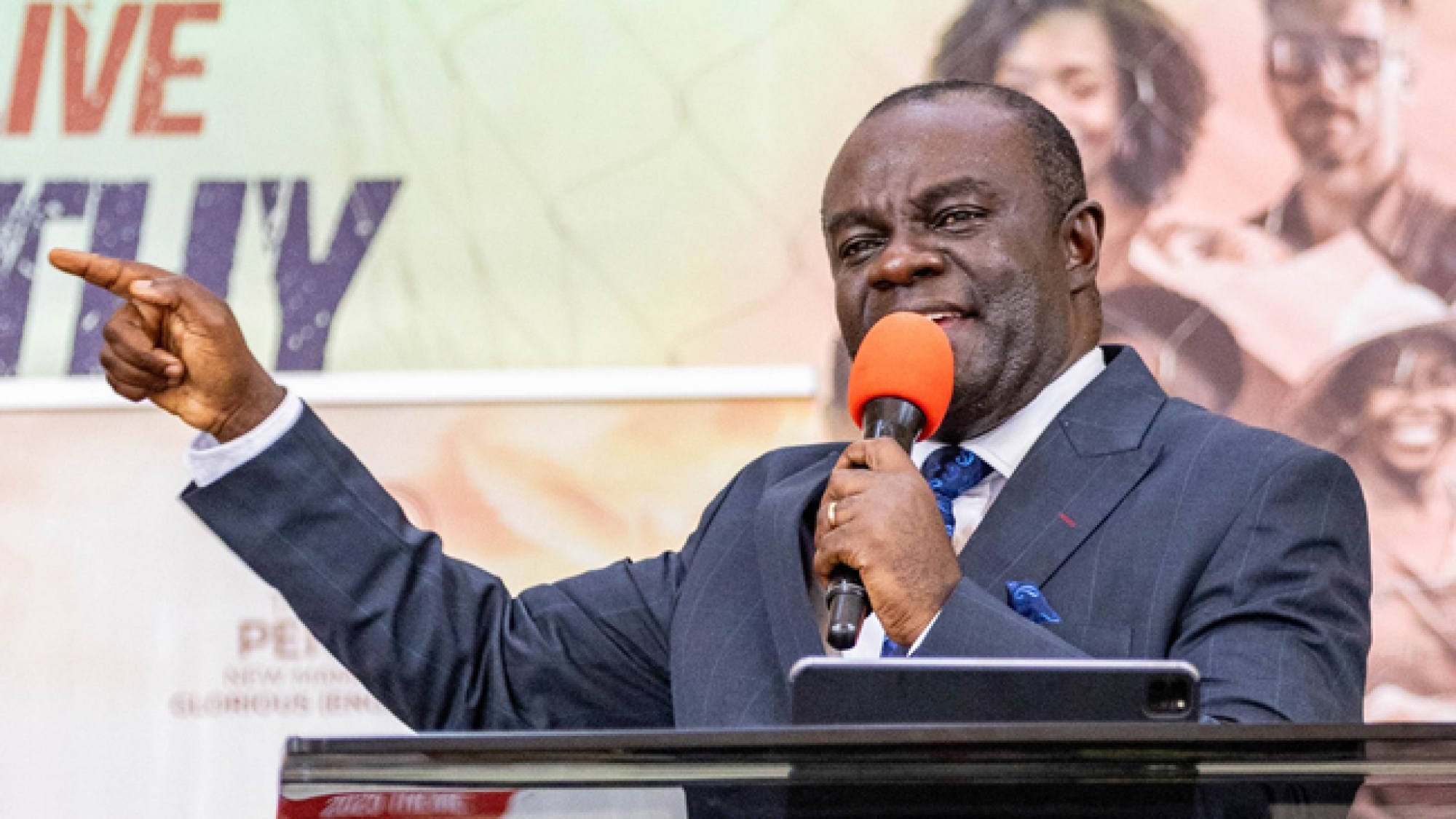Background
This article aims to shed light on the “Calling,” the “Full-time Ministry,” and the essential partnership between the minister and the minister’s wife, creating a synergy for a beautiful ministry. It also highlights the full-time ministry dimension of a minister’s wife engaged in activities within their ministry setting that are not strictly ministry-related, often referred to as “Secular Work.”
Recently through the rollout of Vision 2028 of The Church of Pentecost, the Chairman, Apostle Eric Nyamekye, has underscored the need to avoid creating a dichotomy between the “sacred” and the “secular.” The secular should always be the setting for the sacred. In this way, the church – those in Christ – will truly serve as agents of transformation, influencing every sphere of society with the values and principles of the Kingdom of God, thereby turning many hearts to participate in the divine nature through faith in Christ.
It is worth noting that God has given everyone in Christ the “Calling.” The purpose of the “Calling” is to fulfill the “Ministry” – whether on a full-time or part-time basis. So, what is the “Calling” and what is the “Ministry”? What is the difference between full-time ministry and part-time ministry? Within the context of The Church of Pentecost, where does the full-time minister’s wife fit into the equation of full-time ministry in light of her work in other not-strictly-ministry settings?
The Nature of God’s Calling
God’s “Calling” is an invitation to become partakers of His divine nature. It is for a person to become like Christ and a bearer of His image. But this is not the end. The ultimate purpose of God’s “Calling” is for a person – becoming like Christ – to be an ambassador of Christ’s character and power, like salt, light, or aroma to the souls within their sphere, causing a transformation by the power of the Holy Spirit through their repentance (turning towards Christ and placing their faith in Him). Here are some scriptural witnesses for this truth:
Matthew 4:19, ‘Jesus called out to them, “Come, follow me, and I will show you how to fish for people!’ (NLT)
1 Corinthians 1:9, ‘God is faithful, who has called you into fellowship with his Son, Jesus Christ our Lord.’ (NIV)
2 Thessalonians 2:14, ‘He called you to this through our gospel, that you might share in the glory of our Lord Jesus Christ.’ (NIV)
The Setting for the Calling
The “Calling” is becoming like Christ and a vessel to receive heavenly content – the image of God through the glorious gospel. The “Calling” does not happen in a vacuum. It happens in real-life settings. It happened when Moses was tending the flock of his father-in-law, Jethro. It happened when Gideon was threshing wheat to keep it from the Midianites. It happened when Elisha was plowing his field. It happened when Mary was going about her daily work at home. It happened when Peter and Andrew were fishing. It happened when Saul (Paul) was on the road to Damascus to persecute those already called by God. God can throw the “Calling” in any human setting, situation, or scenario. God cannot be limited in His approach to “Calling” people. He can call anyone from any profession or background to be like Christ and become a vessel to carry Christ to dying souls.
Exodus 3:1, 2, 4, ‘Now Moses was tending the flock of Jethro his father-in-law, the priest of Midian, and he led the flock to the far side of the wilderness and came to Horeb, the mountain of God. There the angel of the Lord appeared to him in flames of fire from within a bush. Moses saw that though the bush was on fire it did not burn up…When the Lord saw that he had gone over to look, God called to him from within the bush, “Moses! Moses!” And Moses said, “Here I am.”’ (NIV)
Judges 6:11-12, ‘The angel of the Lord came and sat down under the oak in Ophrah that belonged to Joash the Abiezrite, where his son Gideon was threshing wheat in a winepress to keep it from the Midianites. When the angel of the Lord appeared to Gideon, he said, “The Lord is with you, mighty warrior.”’ (NIV)
Luke 1:26-28, ‘In the sixth month of Elizabeth’s pregnancy, God sent the angel Gabriel to Nazareth, a town in Galilee, to a virgin pledged to be married to a man named Joseph, a descendant of David. The virgin’s name was Mary. The angel went to her and said, “Greetings, you who are highly favored! The Lord is with you.”’ (NIV)
Ministry: The Purpose of the Calling
The end goal of the “Calling” is to serve as human vessels to impart Christ (the divine nature) to the souls within our various spheres. In the “Calling,” we receive heavenly contents to pour out to dying souls, imparting divine life to them. We are filled with divine virtues and power to impart unto dying souls. We become jars of clay filled with heavenly treasures. Out of our bellies flow streams of living waters. We work out our salvation with fear and trembling because the salvation of many souls depends on our instrumentality. Thus, much as the “Calling” is to be like Christ and receive divine content, “Ministry” is going out there – being unleashed – to express this divine content. The “Ministry” is what is known as “God’s Work.” Thus, the end goal of the “Calling” is “Ministry.”
Acts 13:2, ‘As they ministered to the Lord and fasted, the Holy Spirit said, “Now separate to Me Barnabas and Saul for the work to which I have called them.”’ (NKJV)
2 Corinthians 4:7, ‘We now have this light shining in our hearts, but we ourselves are like fragile clay jars containing this great treasure. This makes it clear that our great power is from God, not from ourselves.’
John 7:38-39, ‘Whoever believes in me, as Scripture has said, rivers of living water will flow from within them.” By this, he meant the Spirit, whom those who believed in him were later to receive. Up to that time the Spirit had not been given, since Jesus had not yet been glorified.’ (NIV)
Philippians 7:38-39, ‘Dear friends, you always followed my instructions when I was with you. And now that I am away, it is even more important. Work hard to show the results of your salvation, obeying God with deep reverence and fear. For God is working in you, giving you the desire and the power to do what pleases him.’ (NTL, bold mine)
After calling Paul, this was Jesus’ instruction to Ananias regarding the ministry description of Paul:
‘But the Lord said to Ananias, “Go! This man is my chosen instrument to proclaim my name to the Gentiles and their kings and the people of Israel.’ (Acts 9:15)
The Components of the Ministry
It is worth restating that, “Ministry” is receiving heavenly words and treasures and delivering them to target groups. These contents can also be referred to as values and principles of the Kingdom of God. Ministry results in, as Chairman Nyamekye would say, “meeting needs, solving problems, and answering questions” so that many may come to Christ. The “Components of Ministry,” as I have come to know and experience them, are as follows:
- Interceding for others and various people groups in prayer;
- Forgiving others because Christ also forgave us;
- Showing kindness to others as the Spirit leads for the sake of Christ even when recipients show no gratitude;
- Studying our various ministry settings (contexts) and sharing the glorious gospel of Christ for others to also become vessels of Christ; invariably, people come to Jesus through other people; remember that Andrew brought his brother Simon Peter to Jesus;
- Walking with those who receive the gospel on their path of growing in Christ;
- Giving towards the corporate church efforts at possessing the nations for Christ.
- Staying unleashed in our spheres to live lives worthy of our calling as imitators of Christ in the power of holiness by the Spirit;
- Creating a transformational movement of Christ by building godly structures in every position of influence regardless of persecution – that is, saying, “No” to sin and “Yes” to godliness – for the glory of Christ;
- Openly affirming others within the movement of Christ who are also standing for Christ;
- Creating fora for peer review, accountability, genuine fellowship, and sharing of transformation testimonies to spur each other unto this glorious good work in Christ (Acts 2:42-47; Hebrews 10:24-25).
Spheres: The Setting for Ministry
Ministry involves intentionally imparting or expressing the content of Christ to transform souls into Christ. Every place where people are present is a ministry setting, and Jesus must reign there. In Vision 2028, these settings are referred to as Spheres. A ministry setting can be a physical place or a virtual space, but it is always filled with human beings from different cultural backgrounds.
The new ministry interventions in Vision 2028, such as Ministry to Celebrities (MoC), The Other Sheep Ministry (TOSM), Ministry to People Living with Disabilities (MPLWD), Schools Outreach Ministry (SOM), and Home and Urban Ministry (HUM), are designed to understand different people groups within our ministry settings. These interventions aim to tailor the heavenly treasure (the glorious gospel) to them in contextually relevant ways without compromising the gospel message.
There are many ministry settings around us. In which ministry setting are you serving intentionally as a missionary? To which people group within your ministry setting do you feel called? Selah.
In every human setting, there are people groups to be studied, prayed about, and reached with the gospel, leading them on a journey of discipleship to be like Christ. Every setting for human interaction is a ministry setting – in marriage, school, on the streets, at the workplace, as parents, in the neighborhood, in vehicular transport, etc. The awareness and intentional activity to impart Christ – the divine treasure – unto souls is the essence of ministry.
The Calling for every believer is the same: to be like Christ and become vessels to impact Christ. However, the Ministry dynamics and settings vary for each of us in Christ. For example, a banker’s ministry setting is primarily the banking sector, but the calling remains the same – to be like Christ and manifest Christ. A person’s ministry setting may be among drug addicts, but the calling remains the same. We should not be surprised to see many more new ministries becoming official because ministry settings are manifold and filled with many people groups yet to be reached.
Matthew 10:5-6, ‘These twelve Jesus sent out with the following instructions: “Do not go among the Gentiles or enter any town of the Samaritans. Go rather to the lost sheep of Israel.’ (NIV)
John 10:16, ‘I have other sheep that are not of this sheep pen. I must bring them also. They too will listen to my voice, and there shall be one flock and one shepherd.’
Acts 26:17-18, ‘I will rescue you from your own people and from the Gentiles. I am sending you to them to open their eyes and turn them from darkness to light, and from the power of Satan to God, so that they may receive forgiveness of sins and a place among those who are sanctified by faith in me.’
Ministry: Full-Time or Part-Time?
If all of us in Christ are called into ministry, what then is the difference between Full-Time and Part-Time Ministry? In a parable symbolic of Jesus returning to heaven and coming a second time, the instruction He gave His followers was, “Occupy till I Come.” This implies Ministry, at least in part. The other dimension of “Occupy till I Come” is the maintenance of the ministry setting – an activity we refer to as Creation Care.
Aside from Creation Care, there are many human needs on earth that provide opportunities for humans to make the earth a better place as we await the Second Coming of Christ. We can ensure Creation Care and Provision of Human Needs either for profit or non-profit (maybe, for goodwill). When we serve the needs of society for profit, such activity becomes a Vocation. A vocation is a service or product to meet the needs that humans perceive as relevant and thus are ready to patronize in exchange for credit/profit. A Christian who is into a vocation and also into ministry is said to be in Bi-Vocational Ministry or Part-Time Ministry.
Those who are strictly into ministry, having dropped the use of their profession for profit, are said to be in Full-Time Ministry. Those in full-time ministry may use their professional knowledge to help the setting in which they minister, but they do so for no profit. Jesus modeled this when He solved existential problems in His earthly ministry setting at zero charge; He turned water into wine for free, fed a multitude for free, and healed for free. His position is, “Freely, we receive, freely we should give.” When we solve human needs for free, such good deeds often become the social capital that provides goodwill for easy ministering among the target group in the ministry setting.
Jesus would often link the human need He solves to their ultimate need of Him as their Saviour; after giving water, He wisely pointed the people towards their need of Him as the Living Water; after giving bread, He wisely pointed the people towards their need of Him as the Bread of Life. All human needs are a temporal manifestation of their eternal ultimate need for Christ as their Saviour. For example, an architect in full-time ministry may use their architectural knowledge to help with the construction of a community centre for the community among whom they minister – doing so for no profit. Afterward, the architect can point the people to Jesus Christ as the Grand Architect of the Universe and their personal lives.
Since they are not using their profession for profit, in God’s economy, those in full-time ministry receive allowances from willing donations from the people among whom they minister – either directly as gifts or through the ecclesiastical institution from the tithes and offerings given by the recipients of the ministry. Thus, those in Part-Time Ministry (an example is Apostle Paul) are to provide for the needs of those in Full-Time Ministry. God foreshadowed this in His provision for the Levites under the Old Covenant.
Numbers 18:24, ‘Instead, I give to the Levites as their inheritance the tithes that the Israelites present as an offering to the LORD. That is why I said concerning them: ‘They will have no inheritance among the Israelites.’” (NIV)
1 Timothy 5:17-18, ‘Elders who do their work well should be respected and paid well, especially those who work hard at both preaching and teaching. For Scripture says, “Do not muzzle an ox while it is treading out the grain,” and “The worker deserves his wages.”’
In The Church of Pentecost, the “Elders” in the context of 1 Timothy 5:17-18 are the clergy in “Full-Time Ministry” or Elders in “full-time ministry” as “Field Assistants” in some nations. God’s arrangement for their upkeep is just like the Levites in the Old Testament.
The expectation is that those in “Full-Time Ministry” will have more time to do ministry while those in “Part-Time Ministry’ (all other Christians) work hard in their vocations for money to take care of their needs and the needs of those in Full-Time Ministry while creating bridges in their setting of vocation to disciple many for Christ, and modeling Christ-like approach to their vocation to stem any corrupt trends. Those in Part-Time Ministry can also meet as “Workers’ Guilds,” an initiative in Vision 2028, to intercede for their profession/vocation, update themselves on current trends in their profession/vocation (maybe from journals and practical experiences), discuss ways to deal with their vocation-specific corruption manifestations, share testimonies of their individual impacts in their workplaces, encourage one another, and pray for one another.
Marriage and Full-Time Ministry
Since all those in Christ have the “Calling” to become like Christ and vessels to impart Christ, and the “Ministry” to intentionally impart Christ within various settings, a group of people can come together for “Joint Ministry.” One example of “Joint Ministry” is marriage. Marriage is the union of two people—adults of opposite sexes at birth—with sound minds, who have fulfilled the requirements of their family, nation, and church denomination(s). This union creates synergy and mutual encouragement, resulting in a better harvest compared to a single person working alone. Indeed, with two coming together in marriage, “Greater works shall they do…” (John 14:12).
Genesis 2:18, 24, ‘Then the Lord God said, “It is not good that the man should be alone; I will make him a helper fit for him…Therefore a man shall leave his father and his mother and hold fast to his wife, and they shall become one flesh.”’ (ESV)
Deuteronomy 32:30-31, ‘How should one chase a thousand, and two put ten thousand to flight, except their Rock had sold them, and the Lord had shut them up? For their rock is not as our Rock, even our enemies themselves being judges.’ (NIV)
Amos 3:3, ‘“Do two walk together, unless they have agreed to meet?’ (ESV)
Jesus as the “Central Force” catalyzes the beautiful synergy of “Joint Ministry” through marriage. With Jesus as the centre of marriage, there is great potential for ministry success.
Ecclesiastes 4:12, ‘Two are better than one because they have a good reward for their toil. For if they fall, one will lift up his fellow. But woe to him who is alone when he falls and has not another to lift him up! Again, if two lie together, they keep warm, but how can one keep warm alone? And though a man might prevail against one who is alone, two will withstand him—a threefold cord is not quickly broken.’ (NIV)
The Minister’s Wife, Functional Subordination, and the Full-Time Ministry
We have discussed the concepts of “Part-Time Ministry” and “Full-Time Ministry.” The minister’s wife can engage in ministry through either approach, ensuring that her efforts complement rather than compete with her husband’s ministry, fostering synergy. Her role includes personal spiritual growth through reading scripture and literature, praying, fasting, and waiting upon the Lord. Additionally, she should build relationships within their ministry sphere, apply her professional skills within the ministry context (whether for profit or goodwill), and actively participate in ministry activities, embodying the expression of Christ.
Functional Subordination is a theological term describing Jesus Christ’s relationship with the Father. It refers to Jesus’ deliberate choice not to compete with the Father, despite their equality in divine nature. This concept also applies to the relationship between Christ and the Church. An analogy can be drawn from football, where the team captain is the only player allowed to speak to the referee on behalf of the team. Although all players are equal, the captain acts as “primus inter pares” (first among equals). Another term for Functional Subordination is “Submission.”
In essence, Functional Subordination or Submission means that a person within a group avoids unhealthy competition or strife, deferring the final decision on a matter to another group member (preferably the leader) to maintain the group’s unity of purpose, despite differing roles. Without submission or functional subordination, a group loses its unified vision, resulting in “Di-Vision” (double visions or conflicts). Such division is disastrous for any group. In The Church of Pentecost, there is always a single vision, currently “Vision 2028,” led by Chairman Nyamekye and the Executive Council.
Philippians 2:5-7. ‘In your relationships with one another, have the same mindset as Christ Jesus: Who, being in very nature God, did not consider equality with God something to be used to his own advantage; rather, he made himself nothing by taking the very nature of a servant, being made in human likeness.’ (NIV)
Ephesians 5:21-24, ‘Submit to one another out of reverence for Christ. Wives, submit yourselves to your own husbands as you do to the Lord. For the husband is the head of the wife as Christ is the head of the church, his body, of which he is the Savior. Now as the church submits to Christ, so also wives should submit to their husbands in everything.
Conclusion
When a married couple shares a Calling and Ministry Vision, they can practice mutual submission. In such a collaborative environment, the wife allows her husband to lead, while the husband empowers his wife by providing opportunities for her to maximize her potential (e.g., taking courses), involving her in the ministry, sharing ministry benefits, graciously receiving constructive criticism, and valuing her perspectives to enhance their “Joint Ministry.”
However, when a couple disagrees on an issue and the husband is not being sacrificial like Christ in considering his wife’s view, the wife is called by God to model submission—following her husband’s lead as long as his position aligns with Christ. In a godly manner, either spouse can yield to prevent the devil from disrupting the beautiful unity and synergy of the “Joint Ministry” afforded by marriage.
Written by Dr Theresah Fianko-Larbi (Optometrist Clinical Psychologist/Wife of the Resident Minister for PIWC Sakumono)







